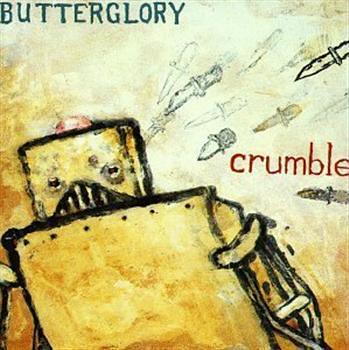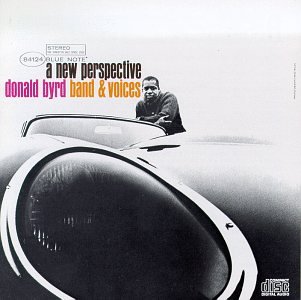
And finally for Kate, the other album she released in 2011, 50 Words for Snow. There's no doubt that 50 Words for Snow is the most beautiful record that she has made and little doubt that it's one of the most perfect. It's no Hounds of Love in terms of grandstanding groundbreaking but it's an extremely bold and challenging piece of work. Thematically it's a miracle of structure, every song sounding like a different kind of snowfall, mostly drifting beautifully around, occasionally swirling up into a blustering flurry before settling down again, and it means that the songs take a long time to work their way through (the shortest just under seven minutes, the longest nearly quarter of an hour). It's lush, romantic but astonishingly understated, and every song has its own distinct feel, and although they are all gentle, graceful, sedate, stately even, there's no mistaking one for another. It's an extraordinary achievement and proof that there's absolutely no second-guessing Kate's genius for development. There are distractions (most obviously Stephen Fry making up names for snow in his all too mockable way on the title track, and a predictably ruinous appearance by Elton John (why does she let these people on her records?)) but the distractions aren't able to damage what is to all intents and purposes an unprepossessingly remarkable record. There's no telling how long the wait will be for the next statement, but whatever she does, even when it's a failure, Kate's work is always a hundred times more interesting than pretty much anybody else's.

Next up would have been the endearingly gloomy How to Know the Butterflies of Love (1999) by The Butterflies of Love, but surprisingly, apart from the first two songs being on Youtube, it isn't on the internet (it's another vinyl version in my collection), so we'll have to skip it.

US indie underground legends Butterglory released three albums on Merge, the first of which was Crumble (1994). The most obvious influence that Butterglory had was on Scotland's the Delgados, who basically ripped off Crumble wholesale for their first album. As ramshackle indie rock goes, Butterglory were absolutely it. Not for them the absolute shambles of The New Bad Things, this was spectacularly well-constructed and contained shambling. Along with Pavement, it was Butterglory who demonstrated that it took a lot of skill to sound this loose, and again like Pavement, it took a lot of skill to write songs this good and make them sound like you were pretty much making them up on the spot. Crumble is a brilliant example of just how great, and how endearing, American indie rock could be in the early 90's. Second album Are You Building a Temple in Heaven (1995) is more of the same engaging shamblepop, but in contrast to Crumble's uplifting pop, this album has a rather sombre, melancholy air about it. It's still great, but there's a sense that something wasn't quite right in the Butterglory camp. It doesn't negatively affect the record at all, and it's still got some blistering songs ('She's Got the Akshun!' remains a classic) but playing the albums side by side makes Temple in Heaven sound like harder work.


Butter 08 was a peculiar kind of supergroup consisting of Russell Simins of the Jon Spencer Blues Explosion, both of Cibo Matto, and film director Mike Mills. They made one album and it's a brilliant but frantic kind of mash up of Jon Spencer-ish blues riffs and funky hammond, with some shrieking and shouting combined with a muddy hypercool stylisation that befitted their signing to Grand Royal. It's all pretty messy, splashy stuff with keyboards and guitars and various disparate vocals sort of doing their own thing without much reference to each other but mysteriously it all works. I remember the lanky idiot that ran Edgeworld records in Brighton going on and on and on and on about this album when it came out - it's not that good, but it's certainly pretty fine.

The first Buzzcocks album, Another Music in a Different Kitchen (1978) is a gleeful dose of ranaway punk-pop, but it's lacking the stupendous melodies that would come later. It's certainly got some fantastic songs ('Love Battery', 'I Don't Mind') but although it's a rush, it doesn't really fulfil the promise of the Spiral Scratch EP that had preceded it. My CD copy of Another Music has Spiral Scratch tacked on to the end, and to say that it has four untouchable songs of punk-pop brilliance would be to understate it. Which is why the album feels strangely flat. Not so the follow-up album Love Bites (also 1978). Now this is one great big song after another. There's no tedious sound experiments (Another Music's 'Moving Away from the Pulsebeat' which is terrible), it's just heads-down and tearing away, speeding from one awesome pop tune to the next. 'Ever Fallen in Love', 'Just Lust', 'Sixteen Again', one after another after another. As a signal of how great late 1970's guitar music could be, it's interesting that the Buzzcocks records weren't the ones that made the stir compared to the Sex Pistols third-rate pub rock. There are one or two lower points on Love Bites (I find 'Operators Manual' and the instrumental closer 'Late for the Train' a bit dull) but nothing really breaks the flow of the album and it feels like it's over in the blink of an eye.


Finally for today it's some new direction jazz by the understated pioneer Donald Byrd. His A New Perspective (1963) album was a fascinating bit of self-effacing redefining of the standard approach to hard-bop. In terms of the music there isn't anything particularly radical going on, but the introduction of a gospel vocal group was a pretty bold move and it works fantastically, adding a whole new layer of musicality over an already fairly impressive instrumental setting. The players on A New Perspective are the typical top flight Blue Note housers, Hank Mobley on tenor sax, Herbie Hancock on piano, Kenny Burrell on guitar, but there's also some delicate vibes work from Donald Best. All in all A New Perspective is a relatively laid-back piece of hard-bop and the vocal group really adds to the cool atmosphere that Byrd creates. I think that Donald Byrd has sort of fallen from the top ranks of people's opinion of the old school jazzers and I think that's a shame, he was pretty sharp.

No comments:
Post a Comment